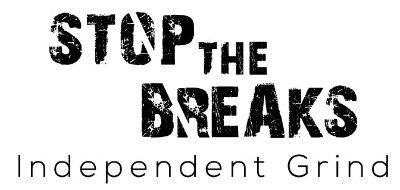
If you’re hoping to upgrade your newbie skills to expert level with high-quality, professional-sounding drum audio for your jam sessions, live gigs, and recordings, it might not be as hard as you think.
Practicing is the number one way to improve, but we’ve compiled some other advice that can enrich your practice, improve your development, and instantly elevate your sound with the right technology.
- The Power of Proper Tuning
Don’t underestimate the need to keep your tuning tight. While there are many ways to tune your instrument, a proper tuning device can mean precision and consistency every time.
Reviewed drum tuners can help you find the right fit for what you need. Whether you mostly play live gigs, have a set as a producer for adding to recorded tracks, or just love jamming with friends, a quality tuning device can ensure that you’re never off-key. Some of the considerations of a good tuner include:
- Does it allow you to tune in a loud environment like pre-show venues?
- Do you have to set the tuning range manually?
- What is the battery life and charging like?
- What is the display like? Does it use a digital read screen?
Be sure that you know what you need from a tuning device before buying, as there is so much variety in the market. With the right tuning, you’ll never start off a set on the wrong foot.
- Good Old Collaboration
Did you know that one of the best ways to improve your skill as a drummer is to work with other drummers? It allows you to experience different styles, perspectives, and skills. It can also force you out of your comfort zone by collaborating on a piece that you would perhaps not have chosen for yourself.
Where can you meet drummers to collaborate with if you are just starting out? Well, friends and acquaintances can be a great place to start. You can also enroll in a class, a club, a group, a band, or start one yourself. Look at local gigs if you feel up to the challenge and let the collaboration begin!
- Get the Right Drum Microphones
Whether you are recording or playing a live gig, the way that you choose to pick up or amplify the sound of your instrument can have a huge effect on its sound.
First of all, not all instruments are the same, and will need different types of microphones. Second, drums have many components that can be amplified individually or all together. In this section, we’ll talk about the way these effects can be improved for both live shows and studio sessions.
At a live gig in a small venue, your drums may not necessarily need amplification while a guitar or voice might. That doesn’t mean that you can’t be strategic about mic placement. Try out just amplifying just your snare. Think about viewing yourself as both drummer and sound designer to help make for strategic and professional-sounding audio clarity. Many drummers use overhead microphones when they want to generally amplify their entire set for a larger crowd.
When recording drums for a track, you are able to isolate and record each part of the drums separately or together. Be sure that you select a microphone designed to capture the volume of these instruments, or you could end up with messy-sounding audio.
The Bottom Line
As a drummer, progress isn’t everything. It isn’t always about delivering highly professional sound or getting the best recordings for your tracks. Learning the instrument takes time, practice, and passion. Along the way though, you can use these tips to truly get the most out of where you are.
Get the right tuning device, start collaborating with other drummers you respect, and learn about sound design and microphones. Pretty soon, you’ll be delivering more consistently high-quality audio and deeper entrenching yourself in the drummer community.



